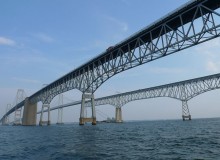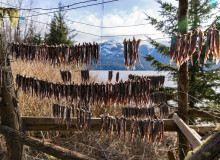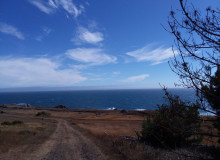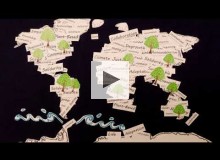Search

(Su Neko/Creative Commons)
Health In Harmony
Monday, December 17, 2018
"Our over-consumption of Earth’s resources has destroyed animal habitats, polluted the environment, and decimated wildlife populations. Humans created this crisis. We are also able to stop it."
Tags: opinion, op-ed, expert voices, zoos, climate change, Adaptation, resilience, Biodiversity
Planet Forward Senior Correspondent
Saturday, March 02, 2019
Despite the devastating impacts of colonization, the Kashia Band of Pomo Indians have persevered in restoring their ecosystem and culture. Learn how the Kashia have lived in and managed the Sonoma County coastal environment for centuries.
Tags: Kashia, tribe, sustainable management, native food, california, ocean resources, land management, restoration, storyfest2019
Eco-Business
Friday, March 09, 2018
Envisioning an inspiring future requires the right vocabulary to build this world — the upcoming "Loanwords to Live With" is a collection of ecotopian words that should exist in English to talk about the environment, but don't yet.
Tags: Language, ecotopia, future, sustainability, storyfest2018, Video

(Photo by ezioman/Wikimedia Commons)
Sewanee: University of the South; Summer 2016 Intern
Tuesday, July 26, 2016
The Chesapeake Bay is held in the highest regard, as an almost mythical monument to the natural world — an untouchable ecosystem. But even at a young age, it became clear to me that this was no longer the same body of water that once flourished.
Tags: Chesapeake Bay, chesapeake, oysters, clean water, pollution, overfishing, overharvesting, overharvest, overfish, runoff

Sun-dried candlefish, also known as hooligan, eulachon, and oolichan. (Brodie Guy/Flickr (CC BY-NC-ND 2.0))
George Washington University
Thursday, June 30, 2022
Today, petroleum is one of Alaska's main exports, but the use of oil in the region goes back thousands of years to the Tlingit people's harvesting of lipid-dense and flammable candlefish. Can this history illuminate a way to a green-fueled future?


